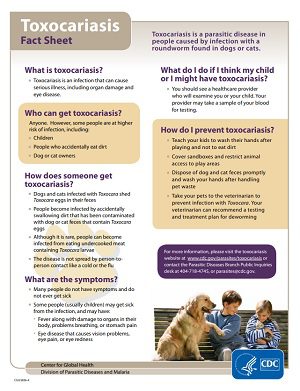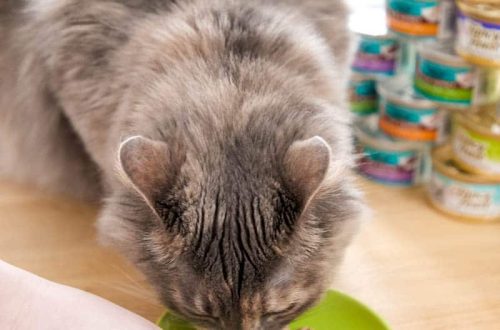
Toxocariasis na nwamba: mgbaàmà na ọgwụgwọ
Each pet owner is attentive to the health of his pet and vaccinates and treats him against parasites on time. But sometimes even cats that do not leave the house and have passed all the necessary examinations can become infected with a parasitic disease. One such disease is toxocariasis.
Toxocariasis in cats is caused by Toxocara roundworms. Adult individuals of toxocara parasitize in the small intestine and stomach, preventing their normal functioning. But the larvae, which quickly spread throughout the cat’s body and destroy all tissues, are of particular danger.
Ihe na-akpata ọrịa ahụ
Toxocara in a cat can appear in several ways: for example, the pet accidentally ate the infected excrement of another animal or dirty ground. Even absolutely domestic cats have a risk of becoming infected: parasites can be brought into the house on shoes by the owner. Kittens can pick up the disease with the milk of an infected mother, less often in utero.
Cats that have access to the street are at risk. They may well catch or even eat an infected mouse, stain their fur with infected feces, and then lick themselves, and so on.
Depending on the localization of parasites, several forms of the disease are distinguished. It can be pulmonary toxocariasis, muscular, hepatic, etc.
mgbaàmà
Symptoms of toxocariasis in cats may vary depending on the localization of the main number of parasites. Vomiting, diarrhea, refusal of food or, conversely, increased appetite, allergic reactions in the form of itching, redness of the mucous membranes and lacrimation, lethargy, apathy and bloating are possible. With a small amount of Toxocara, the symptoms of the disease may be mild or absent altogether.
Nchoputa na ọgwụgwọ
For any symptoms, do not diagnose yourself. An experienced veterinarian will conduct the necessary examinations, make a diagnosis and prescribe the necessary treatment. Examinations may include a clinical blood test, fecal tests for helminths, and a visual examination. The main treatment for toxocariasis is deworming. In especially advanced cases, the pet will need to be in the hospital, as parasites can cause severe intoxication of the body and even abscesses that are surgically removed.
Prevention
The best prevention of any parasitic disease is the timely treatment of the cat from parasites and vaccination. Should be planned annual visit to the veterinary clinic for examinations and procedures. If the cat travels with the owner to the country, treatment from parasites should be carried out more often, but strictly adhering to the recommendations of specialists.
If the pet does not have access to the street, as a prevention of infection, it is recommended to carefully monitor the cleanliness of shoes and those places in the house where dirt may accumulate. You can install a special cleaning mat outside the threshold of the apartment or wash your shoes immediately after a walk. Do not allow your cat to lick dirty objects, such as grocery bags or unwashed vegetables.
In no case should give pets raw meat, milk or fish – they can also become a source of infection with parasites. All natural products for a cat must undergo heat treatment. But it is best to use specialized industrial feed. As for the diet, it is better to consult a veterinarian.
You should carefully monitor the general condition of the cat and consult a specialist at the first symptoms of malaise. Any disease is easier to cure in the initial stages than in its advanced form.
Leekwa:
● Afọ gbawara agbawa na pusi - ihe kpatara na ọgwụgwọ ● Overweight and obesity in cats ● Pancreatitis in cats: causes, symptoms and treatment





